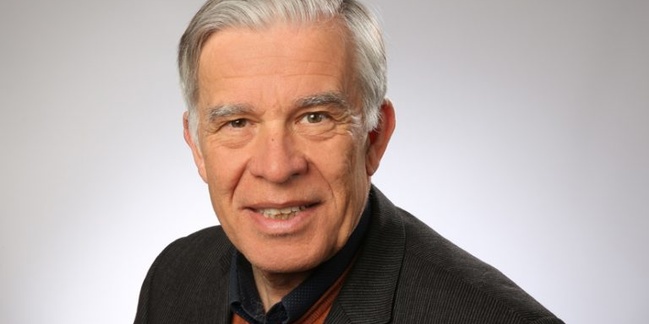 |
Loginoder neu registrieren? |
|||||
              
| ||||||
SucheSuchen Sie im kath.net Archiv in über 70000 Artikeln:     Top-15meist-diskutiert
|  The Reorientation of the John Paul II Institute21. August 2019 in English, keine Lesermeinung Open letter to Msgr. Pierangelo Sequeri, President of the Pontifical John Paul II Institute for marriage and family. By Berthold Wald Paderborn-Vatikan (kath.net) Dear Msgr. Sequeri, As one was able to read in the news, in the process of reorienting the John Paul II Institute, these principles have been ignored in an unprecedented way. The new statutes were defined without academic cooperation and without consultation of the professors, who were simply informed about their dismissal due to the Institutes new orientation. The possible objection that these are not dismissals but rather a simple non-employment in a new institution, does not hold water. This would only be an argument if the Institute had been closed after the academic bodies had been consulted, if the professors had been informed in good time of the need to close it, and if the Institute had actually ceased activity at least for a time. None of this was the case. At every state university such a pseudo-legal justification of the dismissal of tenured professors would be seen as an attempt to deceive the public. The goal should have been the reorientation of the Institute in a way that would permit it to continue dedicating itself to the topic of marriage and the family, and this in a way that justifies the reference in its name to its initial founder Pope John Paul II. The most consequential change is probably the elimination of the Chair of Fundamental Morals, which implicitly undermines the Institutes goal to study fundamental anthropological and ethical questions, a goal that John Paul II considered indispensable. The fact that John Paul II still figures prominently in the Institutes name will not mislead anyone. In reality, the continuity with its predecessor institution, which had a strong philosophical-anthropological basic orientation, is only apparent. Without discussing the questionable material contents of this decision, one can see that the formal procedure adopted in establishing this new Institute can endanger the public recognition of academic institutions legally affiliated with the Catholic Church. As chairman of the Association of Catholic Theological Faculties (Katholisch-Theologischer Fakultätentag) I was directly involved in the implementation of the Bologna Process in cooperation with the Roman Congregation for Catholic Education, the German Bishops Conference and the pertinent state institutions dealing with policies of higher education. It would not have occurred to anyone to ignore the right of faculties to have a say, which would have rendered the reform of the study program absolutely impossible. In fact, both the German Conference of University Presidents and the German Science Council at that time recognized that the active participation of Catholic faculties and universities in the Bologna Process had been exemplary and in conformity with the standards of scholarship. The equality of ecclesiastical academic institutions with state universities is not to be taken for granted, as there is no guarantee of permanence for it. This equality is essentially based on the recognition of the same basic rules that serve to protect and preserve academic freedom. The fact that the state recognizes the possibility of having institutions of higher learning that are bound to the Catholic religious confession is, however, no carte blanche for authoritarian interference in the academic rights of professors. Having collaborated in two commissions of the German Science Council, I know that it is precisely the suspicion of ecclesiastical interference with academic processes that most damages the reputation of Catholic institutions of higher learning. The fact that from a German perspective, Rome is far away does not reassure me at all. On the contrary, I am afraid that the arbitrary acts by ecclesiastical authorities that have surfaced when the Institute was re-founded will not merely damage the academic reputation of the Institute itself. They may also nourish a general anti-Roman attitude and thus endanger the academic status of ecclesiastical universities as a whole. Even the phenomenon of the abuse of academic freedom can be understood as a latent, subconscious reflex to ward off the threat of ecclesiastical interference with academic freedom. Any university professor who has ever held a position of responsibility at an ecclesiastical faculty knows this only too well. I wonder what are the real reasons why you, as a renowned academic, do not see the threat of the Churchs academic institutions robbing themselves of their own value. Since this is by no means an exclusively Roman affair, my letter will also appear in the German and possibly international press. Berthold Wald Pressefoto Prof. em. Berthold Wald /Theologische Fakultät Paderborn Foto Prof. Wald (c) Theologische Fakultät Paderborn Ihnen hat der Artikel gefallen? Bitte helfen Sie kath.net und spenden Sie jetzt via Überweisung oder Kreditkarte/Paypal!  LesermeinungenUm selbst Kommentare verfassen zu können müssen Sie sich bitte einloggen. Für die Kommentiermöglichkeit von kath.net-Artikeln müssen Sie sich bei kathLogin registrieren. Die Kommentare werden von Moderatoren stichprobenartig überprüft und freigeschaltet. Ein Anrecht auf Freischaltung besteht nicht. Ein Kommentar ist auf 1000 Zeichen beschränkt. Die Kommentare geben nicht notwendigerweise die Meinung der Redaktion wieder. |  Mehr zuVatikan
|        Top-15meist-gelesen
| |||
 | ||||||
© 2026 kath.net | Impressum | Datenschutz | ||||||

